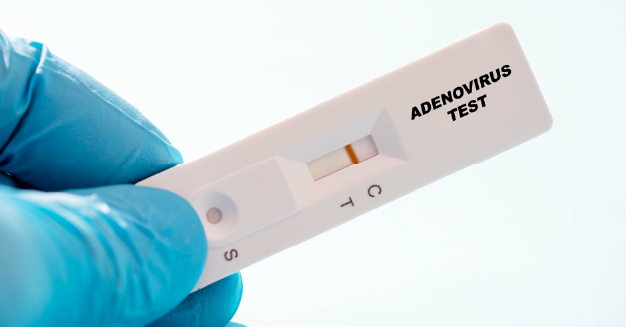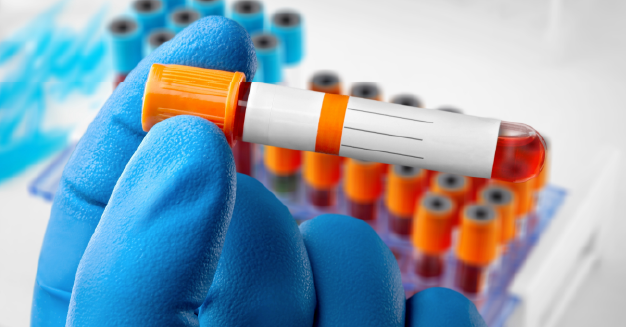What Are Adenoviruses?
Adenoviruses are a family of viruses that can infect various parts of the body, including the respiratory tract (nose, throat, and lungs), intestines, eyes, and urinary tract. More than 50 different types of human adenoviruses can cause a wide range of illnesses, from the common cold to more severe conditions like pneumonia.
How Do You Get Adenovirus Infections?
Adenovirus infections are typically acquired through close contact with an infected individual or by close contact with contaminated surfaces and objects. These viruses can spread through respiratory droplets (such as coughs or sneezes), making crowded places like schools and daycare centers potential hotspots for transmission.

Preventing Adenovirus Infections
Steps for preventing adenovirus infections include:
Hand Hygiene
Regularly wash your hands with soap and water for at least 20 seconds, especially after using the bathroom, touching contaminated surfaces, or before eating.
Avoid Close Contact
If you or someone you know has an adenovirus infection, try to avoid close contact with others, such as kissing, hugging, or sharing eating utensils.
Vaccination
Vaccines are available for certain types of adenoviruses, primarily those that cause respiratory issues. These vaccines are not part of routine childhood vaccinations and are usually reserved for specific populations at higher risk.
Maintain Good Respiratory Hygiene
Cover your mouth and nose with a tissue or your elbow when coughing or sneezing. Dispose of used tissues properly and wash your hands afterward.
Disinfect Surfaces
Regularly clean and disinfect frequently touched surfaces, such as doorknobs, countertops, and electronics.
Avoid Sharing Personal Items
Refrain from sharing items like towels, eating utensils, and drinking glasses, as these can transmit the virus.
Symptoms of Adenovirus Infections
Depending on the type of adenovirus involved and the site of infection, symptoms of adenovirus infection can include:
- Fever
- Sore throat
- Cough
- Runny or stuffy nose
- Sneezing
In some cases, adenoviruses can lead to more severe symptoms, such as:
- Bronchitis
- Pneumonia
- Conjunctivitis (pink eye)
- Eye redness
- Diarrhea
- Vomiting
- Abdominal pain
It’s important to note that while most adenovirus infections are mild, certain types of adenoviruses, especially in vulnerable populations, can lead to more serious illnesses, highlighting the importance of early diagnosis and appropriate medical care.

Testing for Adenovirus Infections
Adenovirus testing encompasses a range of diagnostic methods designed to identify and confirm the presence of adenoviral infections in individuals. These tests are instrumental in the medical field, helping healthcare professionals make accurate diagnoses and determine appropriate treatment strategies. Several different types of tests are commonly used for adenovirus detection, each with its unique advantages and applications.
Polymerase Chain Reaction (PCR) Tests
PCR tests are highly sensitive and specific molecular assays that detect the presence of adenovirus DNA in clinical specimens. These tests are widely used in laboratory testing and can identify the specific adenovirus type causing the infection and are also known as Respiratory Pathogen tests. PCR is particularly valuable for respiratory, ocular, and gastrointestinal adenovirus infections.
Antigen Detection Assays
Enzyme-linked immunosorbent assays (ELISA) and other antigen detection tests target specific adenovirus proteins, such as hexon or fiber proteins. These tests provide rapid results and are often used for point-of-care testing.
Serological Tests
Serological tests detect adenovirus-specific antibodies in the blood, indicating a past or current infection. These tests can help determine the immune status of an individual but are less useful for diagnosing acute adenovirus infections.
Multiplex PCR Panels
Some diagnostic platforms offer multiplex PCR panels that can simultaneously detect multiple respiratory viruses, including adenoviruses, in a single test. These panels are valuable for diagnosing respiratory infections, especially during outbreaks.
Next-Generation Sequencing (NGS)
NGS technology can be used to sequence the entire genome of an adenovirus, providing detailed information about its genetic composition. NGS is primarily used in research and epidemiological studies to understand the genetic diversity and evolution of adenovirus strains.
Treatment for Adenovirus Infections
In most cases, adenovirus infections resolve on their own without specific antiviral treatment. The focus of treatment is on relieving symptoms and supporting the immune system:
Rest
Get plenty of rest to allow your body to recover.
Hydration
Drink fluids to stay hydrated, especially if you have gastroenteritis and are experiencing diarrhea or vomiting.
Fever Reduction
Over-the-counter pain relievers like acetaminophen or ibuprofen can help reduce fever and alleviate discomfort. Always follow dosing instructions and consult a healthcare provider if you have concerns, especially when giving these medications to children.
For severe cases or individuals with weakened immune systems, hospitalization may be necessary to manage complications and provide supportive care.
Respiratory Pathogen Testing at OnPoint Labs
Adenovirus testing is indispensable in diagnosing adenovirus infections, ranging from mild respiratory illnesses to more severe and potentially life-threatening conditions. As we navigate the challenges posed by infectious diseases, the availability of diverse testing methods, including PCR, antigen detection assays, and serological tests, empowers healthcare providers to identify and manage these infections effectively.
If you find yourself in the Greater Houston area and require adenovirus testing or other diagnostic services, consider reaching out to OnPoint Labs. Known for our commitment to providing high-quality testing services that can aid in the diagnosis and treatment of various infectious diseases, including adenovirus infections, we ensure the health and well-being of the community we serve. Visit our website to learn more about the services we offer.


